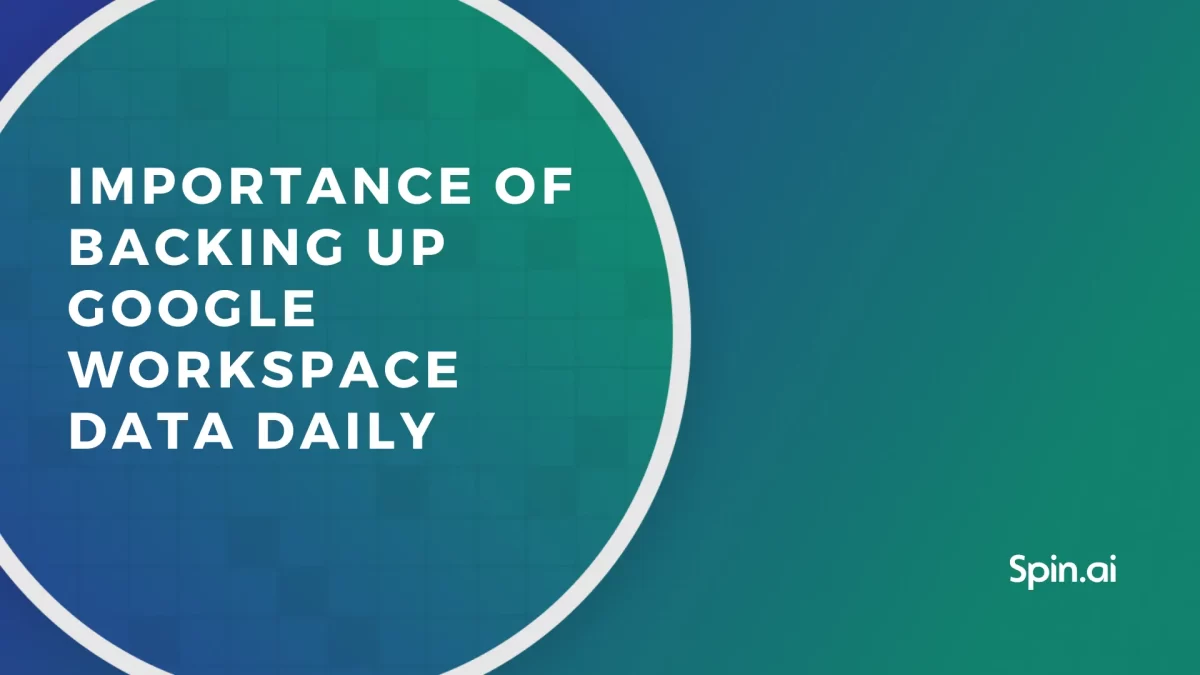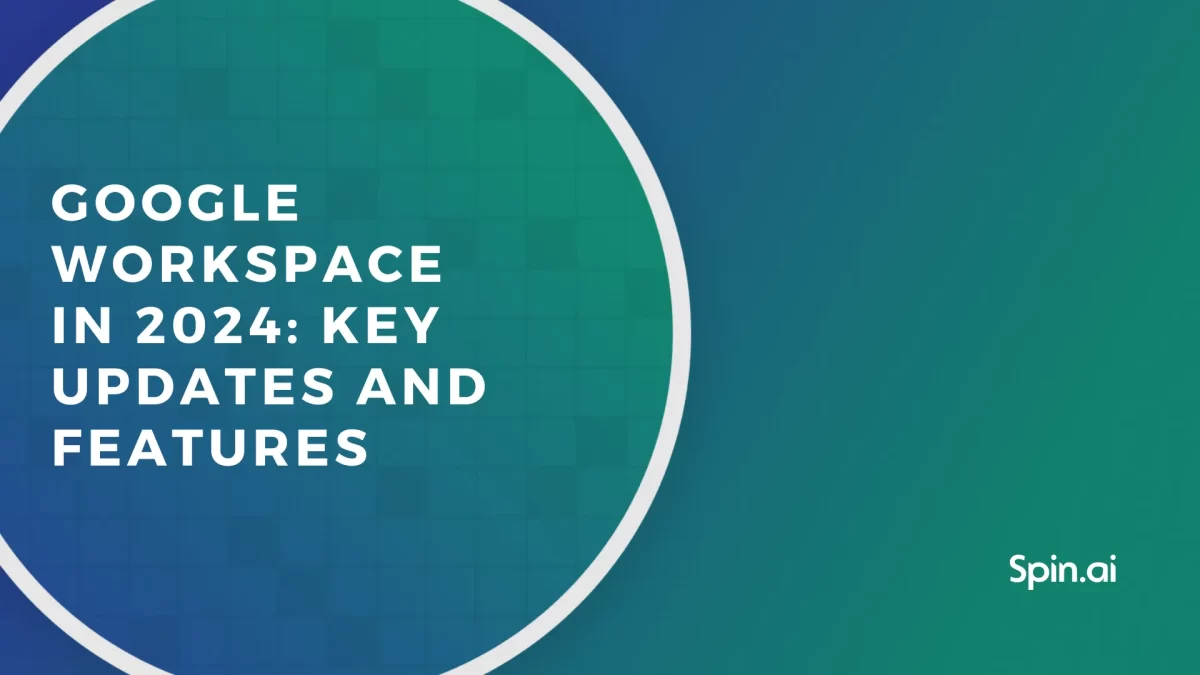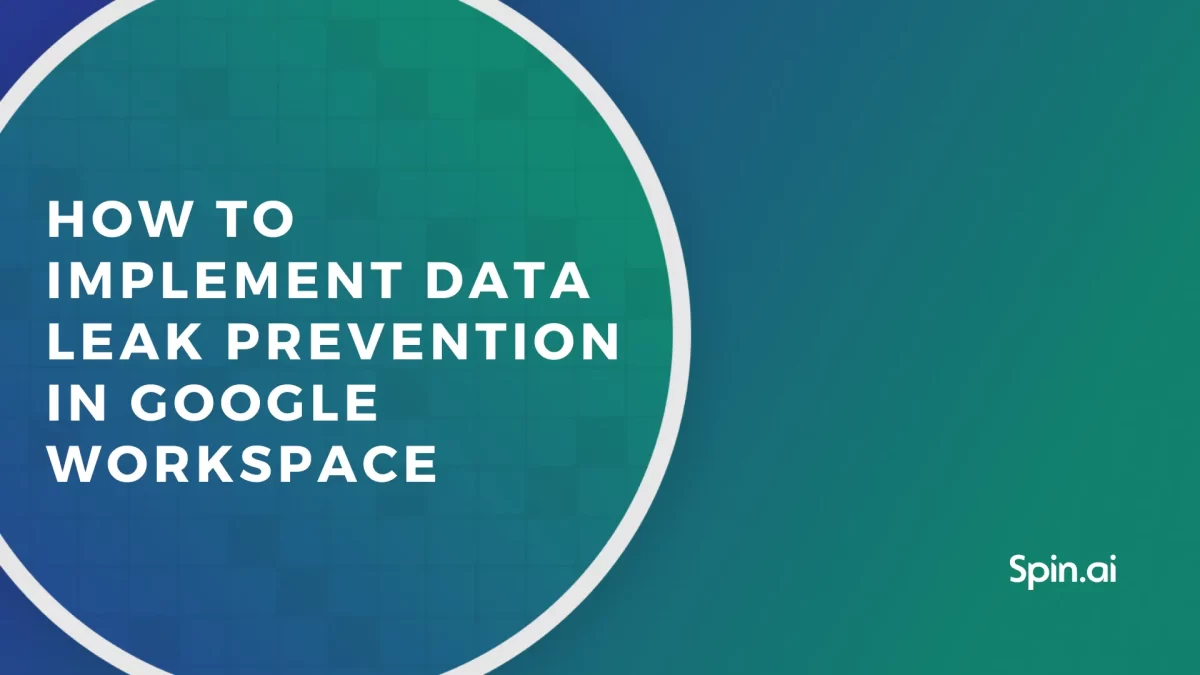Google Drive Encryption. Ultimate Guide for Admins

Storing information, including sensitive information in the public cloud can be worrisome for businesses. Countless news headlines of data leakage and privacy violations continue to rock businesses in a wide range of industries and technology spaces.
The ability for organizations today to protect their data and ensure it is protected from prying eyes is becoming ever more crucial. In fact, the very survival of tomorrow’s businesses may very well depend on their ability to ensure data privacy and adhere to the growing list of data compliance regulations.
Most data compliance regulations have strict guidelines dictating how data should be transmitted and stored. This generally includes encrypting data to ensure it is safe from unauthorized access. For organizations utilizing Google Drive for public cloud storage, how can they ensure that data is safely stored in the Google Drive cloud? How can third-party encryption be used for added protection, and how to encrypt documents on Google Drive?
What is Google Drive Encryption?
To find out how to encrypt Google Drive documents, you must first take a look at the question – what is Google Drive encryption? Encryption uses mathematical algorithms to create keys that are used to convert data so that it is unreadable to any end-user without the key that unlocks the data.
Once the encryption key is used to make the data readable once again, the data can be viewed normally without issue. One of the industry-standard encryption types is AES Encryption or Advanced Encryption Standard.
AES encryption is a symmetric encryption algorithm that uses a block cipher, which encrypts data one fixed-size block at a time. There are various underlying types of AES encryption that can be used. These include AES-128, AES-192, and AES-256. These determine the various rounds of encryption that are used to encrypt data. With the 128-bit variant, 10 rounds of encryption are used. With 192-bit, there are 12 rounds, and with 256-bit, there are 14 rounds.
As mentioned, AES uses symmetrical key encryption. This means the key that is used to encrypt the data must be shared with the party you wish to unencrypt the data. If the key itself is compromised, all encrypted data is at risk of being exposed and leaked.
Another popular encryption technology is RSA Encryption. RSA encryption is an asymmetric encryption algorithm that uses public-key cryptography to share data over an insecure network. Public-key encryption uses the concept of a public key and a private key. The public key can be seen by anyone and everyone can access it.
The private key is confidential. One key is used to encrypt the data and the other key is used to decrypt it. So, both keys are needed if you want to encrypt and decrypt a message.
Types of Google Drive Encryption
Google actually already has encryption in place for Google Drive, both in-flight and at rest. In-flight encryption encrypts data as it traverses over the network and at-rest encryption encrypts the data as it sits on disk. Google utilizes AES-256 bit encryption to encrypt files as they are transferred across the network and AES-128 bit encryption as they are stored on disk. Google is fairly secretive about the exact details of the process utilized for their native Google Drive encryption and how this is implemented, however, they offer the following details regarding the encryption used in-flight and at rest.
Yes. Data is encrypted at several levels. Google forces HTTPS (Hypertext Transfer Protocol Secure) for all transmissions between users and Google Workspace services and uses Perfect Forward Secrecy (PFS) for all its services. Google also encrypts message transmissions with other mail servers using 256-bit Transport Layer Security (TLS) and utilizes 2048 RSA encryption keys for the validation and key exchange phases. This protects message communications when client users send and receive emails with external parties also using TLS.
PFS requires that the private keys for a connection are not kept in persistent storage. Anyone who breaks a single key can no longer decrypt months’ worth of connections; in fact, not even the server operator is able to retroactively decrypt HTTPS sessions.
Customer Data that is uploaded or created in Google Workspace services is encrypted at rest, as described. We have also enabled HTTPS for all of our Google Workspace services so that your data is encrypted when traveling from your device to Google and also while in transit between Google data centers. The list below details what type of data is encrypted for each Google Workspace service:
- Drive—Files in Drive and all file metadata (e.g. titles and comments.)

Google Drive is a widely used public cloud storage solution with great features for both businesses and individuals
Do You Really Need a Third-Party Google Drive Encryption Tool?
With the built-in protection Google provides, is there a need for additional Google drive encryption? There are a couple of details surrounding the Google Drive encryption process that can lead organizations to pursue additional Google Drive encryption technologies to bolster their data privacy.
Google utilizes TLS encryption to transport the data during the upload process which results in a very brief window of time where data is actually decrypted before it is encrypted again.
Additionally, with Google handling all of the backend mechanisms for data encryption, organizations do not really have full control over this process to ensure data is kept private.
Why Businesses Should Encrypt Google Drive
Taking the above possible weaknesses in Google’s own encryption mechanisms into consideration, organizations who add an extra layer of encryption to their Google Drive data are able to have complete control over the encryption process, encryption algorithm, and provide an additional layer of security on top of the Google native Drive encryption.
As tremendously powerful as public cloud services and offerings are, organizations cannot fully entrust data privacy and security to public cloud vendors. They must get involved and take a proactive approach to secure their data.
Top Benefits of Google Drive Encryption
The benefits of encrypting Google Drive are numerous for organizations. However, the shortlist of security benefits to providing additional proactive Google Drive Encryption includes the following:
- Additional Protection Against Data Privacy Concerns and Data Leaks
- Regulatory Compliance
- Layered-Approach to Security
1. Additional Protection against Data Privacy Concerns and Data Leaks
Organizations that implement their own data encryption for Google Drive are ensuring additional protection against data privacy concerns and data leaks. In today’s data privacy and data security-focused world, organizations must take data security and privacy seriously.
This means implementing their own data security and privacy mechanisms inside public cloud environments. This allows the confidence of knowing data has the extra level of protection in case the built-in protection afforded by the public cloud vendor fails.
2. Regulatory Compliance
Regulatory Compliance is becoming an increasingly important and often challenging aspect of normal business operations. Compliance regulations are for the good of data privacy and security. Since encryption is generally a requirement set for by most compliance regulations, organizations implementing their own data encryption mechanisms in the public cloud helps to ensure these regulations are easily met.
3. Layered-Approach to Security
It has been said that security is like the “layers of an onion”. It takes multiple technologies, mechanisms, and measures to ensure data security. If one layer fails, the next layers take over. Organizations that add their own security layer to their Google Drive data are adding an additional layer of security on top of what is provided by Google’s default security. This helps to ensure data is secure by providing yet another means of protection.
Should Users Encrypt Google Drive?
Is data privacy only a concern of businesses? Individuals stand to benefit greatly by taking their data privacy seriously and taking their data security in their own hands with additional security measures. What are the benefits to individuals encrypting their data? Why is it so crucial to encrypt a folder in Google Drive?
- Extra protection for lost mobile devices
- Hacked accounts
- Extra protection when victims of phishing
Extra Protection for Lost Mobile Devices
When mobile devices are lost or stolen, personal data and other sensitive information are often contained on today’s devices that are tied to email accounts. In the realm of Android, this is a Gmail address. This same Gmail address is also tied to all other Google services, including Google Drive.
If someone has access to a lost or stolen mobile device, they potentially have access to all data contained in Google Drive. Encrypting the drive adds the extra protection that comes into play in these situations where data can be compromised.
Hacked accounts
Recently, it came to light that Microsoft Outlook.com personal accounts were open to public viewing by hackers who had compromised a support account. It sheds light on the real and present danger that compromised access to an email account poses a danger to an individual and their data. By making sure data is encrypted, again, provides the extra protection needed when accounts are compromised.
Extra protection against phishing
If an individual falls victim to a phishing scam, their account can be compromised once again. Having an encrypted account helps to ensure data is safe even if an attacker gains access to the account by phishing or some other means.
How to Encrypt Files on Google Drive Using Third-Party Software

File encryption on Google Drive is easy if you use the right instruments. There are many great utilities that allow businesses and individuals alike to encrypt Google Drive folder. Some of these are open source and others provide free tier service and also paid services for businesses and more extensive services. The following are good places to start for businesses and individuals alike desiring to add an additional encryption layer to their public cloud storage, including Google Drive:
- Cryptomator – Free, open-source, very secure, apps for Windows macOS, Linux, IOS, Android
- BoxCryptor – Uses AES-256 and RSA-4096 encryption, very secure, paid services for Businesses, free for individuals
- Rclone with Crypt – Free sync utility that provides encryption. More difficult to configure initially but provides great options for encrypting public cloud files
What is the best encryption for Google Drive if choosing from the tools listed above? We can’t say for sure since it solely depends on your preferences and needs. To find the best Google Drive encryption, you should try different utilities and decide for yourself.
Concluding Thoughts
Organizations and individuals taking a proactive approach to Google Drive encryption adds a tremendous amount of security on top of the already resilient security that Google provides. A third-party encrypted Google Drive provides an additional layer of security that helps to protect against hackers, data theft, and ensures meeting compliance regulations.
Using third-party tools, organizations and individuals can take data privacy and security into their own hands and help to ensure the safety of their public cloud environments.
In addition, Spinbackup provides a powerful security and data protection solution to constantly monitor and proactively secure Google Workspace environments and maintain versioned backups of the environment. Check out the features here.
Was this helpful?
- What is Google Drive Encryption?
- Types of Google Drive Encryption
- Do You Really Need a Third-Party Google Drive Encryption Tool?
- Why Businesses Should Encrypt Google Drive
- Top Benefits of Google Drive Encryption
- Should Users Encrypt Google Drive?
- How to Encrypt Files on Google Drive Using Third-Party Software
- Concluding Thoughts
How Can You Maximize SaaS Security Benefits?
Let's get started with a live demo
Latest blog posts
Importance of Backing Up Google Workspace Data Daily
January 23, 2024Many organizations today are heavily relying on cloud Software-as-a-Service offerings for business productivity, communication, and... Read more
Google Workspace in 2024: Key Updates and Features
December 14, 2023Google Workspace is constantly improving to bring new productivity features for businesses. In this article,... Read more
How to Implement Data Leak Prevention in Google Workspace
October 27, 2023Data leaks in Google Workspace can have severe legal, financial, and reputational implications for the... Read more


